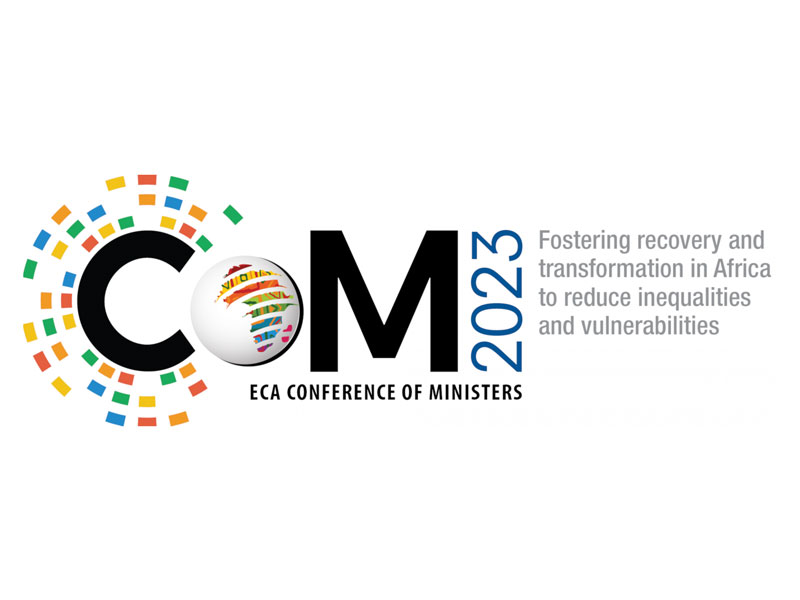Addis Ababa, 2 February 2023 (ECA) - The 55th Session of the Economic Commission for Africa (ECA) Conference of African Ministers of Finance, Planning and Economic Development (CoM2023) will be held from March 15-21, 2023, in Addis Ababa, Ethiopia.
The Session, a statutory meeting of the ECA, will review the state of economic and social development in Africa as well as progress on regional integration.
CoM 2023 will be convened under the theme, ‘Fostering recovery and transformation in Africa to reduce inequalities and vulnerabilities.’ It will be attended by African ministers of Finance, Planning and Economic Development, representatives of member States, entities of the United Nations system, pan-African financial institutions, African academic and research institutions, development partners and intergovernmental organizations.
A preparatory meeting of the Committee of Experts of the Conference of African Ministers of Finance, Planning and Economic Development will precede the 55th Session followed by the ministerial segment of the Conference which will deliberate on the development agenda of Africa on the back of a raft of economic and political challenges facing the continent.
High rates of growth in the past two decades have resulted in reduced poverty levels in Africa. Between 2000 and 2019, the share of population living in extreme poverty decreased from 53.4 percent to 40.1 percent but the absolute number of poor remains high. Today, 546 million people are still living in poverty in 2022.
ECA’s Acting Executive Secretary, Antonio Pedro, said global shocks are turning millions of vulnerable people into the continent’s new poor, reversing decades of progress. The COVID-19 pandemic has pushed an additional 55 million Africans below the poverty line, and the impact of the war in Ukraine is expected to further compound the challenge.
Mr. Pedro said even when growth rates were high in Africa, everyone did not benefit equally. For example, in 2022, the top 10 percent of wage earners received about 30.69 percent of total income.
High inequality, along with high levels of poverty, creates a vicious cycle in which structural bottlenecks persist, rendering the population in Africa perennially vulnerable to both economic and non-economic shocks.
“The ability of African countries to effectively tackle poverty and inequality is now severely constrained given declining economic growth, narrowing fiscal space, rising debt, commodity shocks and tightening global financial conditions,” said Mr. Pedro, adding that, “The risk of missing the poverty and inequality targets set out in the 2030 Agenda for Sustainable Development and Agenda 2063: The Africa We Want, of the African Union, is higher than it has ever been before.”
The 55th Session of the Commission aims to renew focus and action on reducing poverty, inequality and other factors that have left the African population continuously vulnerable to these scourges.
Mr. Pedro urged that recovery efforts must be pro-poor and inclusive, with a view to fostering a new social contract that offers equal opportunity for all.
Considerable opportunities to reach these goals exist on the continent and beyond, including through activities carried out under the African Continental Free Trade Area, green investments, digital transformation and reforms to the global financial architecture.
Issued by:
Communications Section
Economic Commission for Africa
PO Box 3001
Addis Ababa
Ethiopia
Tel: +251 11 551 5826
E-mail: eca-info@un.org
